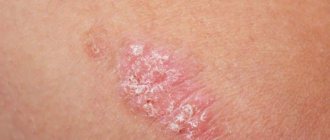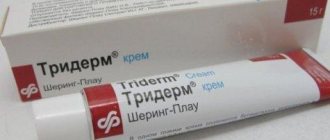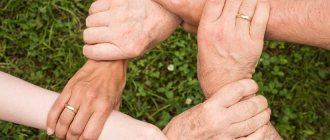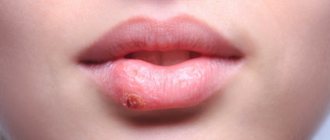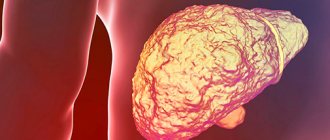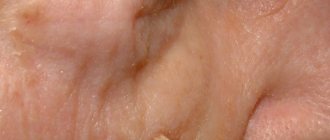If you are faced with manifestations of skin neurosis, seek help from the specialists of the Leto mental health center.
Our doctors have extensive experience and know how to relieve you of burning and itching of the skin caused by nervous experiences. To make an appointment with specialists at the Leto clinic, call 8(969)060-93-93 . Reception is carried out at a time convenient for you.
Features of the disease
Neurosis of the scalp and body is not a very common disease. Psychogenic itching, which is its main symptom, is a consequence of a high level of anxiety. When examining such patients, doctors often detect vegetative-vascular dystonia and mental disorders. The disease occurs in response to physical and intellectual fatigue, stress, information overload, social and material problems.
In order for the symptoms of skin neurosis to remain in the past, it is necessary to understand what led to their appearance. Masking unpleasant dermatological signs with the help of medications is not able to ensure complete recovery.
Cost of consultation with a doctor?
| Name of service | Price, rub.) |
| Initial appointment with a dermatologist | 2000 rub. |
| Repeated appointment with a dermatologist | 1500 rub. |
| Primary appointment with an obstetrician-gynecologist (candidate of medical sciences; doctor of medical sciences) | 2100 rub. |
| Primary appointment with a urologist-andrologist | 2000 rub. |
| Repeated appointment with a urologist-andrologist | 1500 rub. |
| Repeated appointment with an obstetrician-gynecologist (candidate of medical sciences; doctor of medical sciences) | 1600 rub. |
| Primary appointment with an obstetrician-gynecologist | 2000 rub. |
| Repeated appointment with the obstetrician-gynecologist | 1500 rub. |
| Consultation with an obstetrician-gynecologist on pregnancy | 2500 rub. |
| Individual selection of drug treatment for diseases of the pelvic organs | from 1500 to 3000 rub. |
All our services and prices
Eczema
– an inflammatory disease with frequent exacerbations, which is characterized by rashes in the form of blisters with crusts and weeping areas. The lesions are accompanied by itching, burning and peeling. Complications of eczema are the addition of a secondary purulent infection. The disease can be provoked by endocrine, psychovegetative, and immunological disorders. Treatment of eczema is a whole range of measures, including the use of corticosteroids, the use of local therapy in the form of ointments and creams, as well as physiotherapeutic procedures - ozone therapy, cryotherapy, laser treatment, therapeutic mud and baths, a special hypoallergenic diet, anti-allergenic and desensitizing therapy.
Psoriasis
or
scaly lichen
- a chronic disease that affects the skin on various parts of the body, nails and joints (psoriatic arthritis). Symptoms of psoriasis are the appearance of a rash in the form of plaques covered with silvery scales that bleed when scraped off. The patient may be bothered by itching, increased body temperature, muscle atrophy, autonomic disorders, and psychological discomfort. Exacerbations of the disease are observed in the cold season. The treatment regimen includes taking medications, changing your daily routine and diet, and eliminating emotional and physical stress. The patient is indicated for physiotherapeutic procedures, taking sedatives and antihistamines, using special ointments and treatment in a day hospital.
Neurodermatitis
– a skin disease of a neuroallergic nature, the main symptoms of which are weeping rashes in the form of spots, discoloration and thickening of the skin in the affected areas, severe itching, weakness, fatigue, and irritability. The main directions of treatment for neurodermatitis are the elimination of the causes that provoke an exacerbation of the disease, the absence of stress, good sleep, dietary nutrition, the use of corticosteroid and tar ointments, reflexology and physiotherapy, spa treatment and treatment in a day hospital.
Dermatitis
– a variety of skin diseases, which are classified depending on the causes and areas of localization of the lesions. Among the most common are atopic, drug-induced, allergic, and contact dermatitis. The causes of the disease can be internal and external factors. These are disturbances in the functioning of the immune, endocrine and digestive systems, as well as mechanical or chemical effects on the body. The main symptoms of dermatitis are foci of inflammation on the skin, accompanied by irritation, peeling and severe itching. The diagnosis is made based on the results of laboratory blood tests and skin tests for a group of allergens that may be the cause of the disease. Treatment is aimed at eliminating irritants, reducing swelling and inflammation of the affected areas, and preventing possible relapses. This includes taking antihistamines, using hormonal ointments, gentle dietary nutrition, antiseptics and sedatives, and treatment in a day hospital and physiotherapy.
Sign up for skin treatment
Make an appointment
How does the disease manifest itself?
Psychogenic itching can manifest itself:
- urticaria in the genital area, face, neck, hands, chest;
- itchy skin rash all over the body;
- increased sweating;
- unbearable scabies in specific areas of the body;
- red spots on the limbs that resemble burns.
The severity and duration of persistence of negative symptoms may vary. They either fade away or appear with renewed vigor. If left untreated, the disease can last for years.
Nervous scabies often get worse at night. Then the person suffers from insomnia. He experiences a loss of strength, creating conditions for the development of depression.
In addition to itching, skin neurosis can cause dizziness, decreased performance, indigestion, and chest pain. There is no need to hope that the disease will go away on its own. If scabies bothers you and the dermatologist does not know how to cure it, you should immediately visit a psychiatrist. Call - 8(969)060-93-93 .
What symptoms should you see a doctor urgently?
People often resort to self-diagnosis of diseases when identifying changes in the skin. The Internet is replete with articles detailing the symptoms and treatment of diseases. But there are many dangerous symptoms, if detected, you should immediately contact a specialist.
1. Rash
. The rash is a symptom of many diseases, both skin and related to other organs. Rashes can be a symptom of an allergic reaction, stress, gastrointestinal pathology, and even cancer. If the rash is brightly colored and does not go away for more than 48 hours, do not delay visiting a specialist.
2. Warts
. The appearance of warts on the skin is caused by various strains of the human papillomavirus. The virus is transmitted from person to person, so if you find papillomas or condylomas on any part of the body, you should make an appointment with a dermatologist or dermatovenerologist.
3. Peeling
. A seemingly harmless symptom can serve as a signal of a dangerous disease. If peeling skin is accompanied by prolonged itching, redness and severe dryness, it is better to consult a doctor for an accurate diagnosis and treatment. If peeling has become the skin’s response to exposure to frost, sun or wind, then we recommend that you protect your skin more carefully and use special creams.
4. Change in skin color
. A change in skin color after tanning or peeling is quite understandable, but if you find suddenly appearing spots on your body or face, this is a reason to make an appointment with a doctor. Red spots can signal an acute allergic reaction or gastrointestinal diseases, yellowing of the skin is one of the symptoms of hepatitis B and C, dark spots can indicate necrotic processes.
Causes of the disease
The causes of skin neurosis can be divided into two large groups:
- physiological;
- psychological.
Let's look at them in more detail.
Physiological prerequisites for the disorder
Burning and itching appear in response to the activation of affective, motor and sensory areas. A person suffering from psychogenic scabies constantly irritates his skin. While scratching, it becomes a little easier for him - peripheral and central sensitivity increases, and the threshold for the perception of uncomfortable sensations decreases.
In parallel, inflammatory mediators are released in the skin. They increase the sensitivity of the skin. If neurosis is not treated at the first symptoms, the inflammatory process will become chronic.
Signals of irritation traveling along the spinal cord to the brain will begin to be processed faster. Then a vicious circle will arise - the patient scratches himself to relax, and in response, positive reinforcement is triggered, which leads to increased burning and itching.
Of interest is the fact that psychogenic itching is “contagious.” If you look at an itchy person, there is a desire to start behaving in a similar way. Also, some people start to irritate their skin when they see insects.
Why this happens is unknown. Scientists are inclined to think that mirror neurons are to blame. They allow people to feel, to some extent, what those around them are experiencing.
To understand how prone you are to skin neurosis, check whether you have a tendency to imitate other people's scabies. If yes, then you are at risk for this disorder.
Psychological reasons
Experts agree that cutaneous neurosis is associated with a cognitive-behavioral model of behavior. They focus on the phenomenon of catastrophizing.
The fact is that with nervous tension, the skin often begins to itch slightly. This is the norm. It is explained by the hypersensitivity of the skin. If a person does not pay attention to the symptom, it will go away very soon. Scratching the body makes the symptoms worse. Then the thought arises of infection with some dangerous dermatological disease. The patient begins to itch constantly. Even if he does not have the physiological prerequisites for this, he will still instill scabies into himself.
It has been noticed that more often people who perform nervous work, suffer from social phobia, and are in a state of depression encounter psychogenic scabies. But this does not mean that with irritated skin you can always blame everything on nerves. The first thing to do is visit a dermatologist. If the examination does not reveal any abnormalities, and the skin continues to itch, we can assume the psychogenic nature of the disease.
Psychogenic skin diseases
Psychogenic skin diseases
It is believed that neurodermatitis, urticaria, lichen simplex, atopic dermatitis, psoriasis, alopecia areata and pruritus may be caused by psychological causes, but there is no strong evidence of their psychological origin. However, the presence of a skin disease that is visible to others can significantly affect the social life of patients, causing a feeling of awkwardness and depriving them of self-confidence. Moreover, many of the disorders considered in this series arise and worsen after psychogenic episodes, and in their treatment, despite the presence of allergic and metabolic disorders, electrosleep and hypnosis play a significant role. Hives
Urticaria is a disease caused by complex changes in the body’s allergic reaction against the background of severe functional disorders of the nervous and endocrine systems.
The ability to reproduce urticaria and eliminate its clinical manifestations in a state of hypnotic suggestion indicates the leading role of the central nervous system in its development. Characterized by irritability, emotional lability, and inadequacy. There are known cases of urticaria resulting from overwork and physical fatigue. Repeated relapses of urticaria often lead patients to complete exhaustion due to painful itching, insomnia, and developing severe neurotic disorders. The most favorable effect was observed with the combined use of electrosleep and hypnosis in combination with small doses of corticosteroid hormones. It is recommended to use ascorbic acid 0.3 g 3 times a day and rutin 0.1 g 3 times a day for one month, and antihistamines. Eczema
With eczema, functional disturbances in the activity of the nervous and endocrine systems are observed.
A decrease in pain and temperature sensitivity of the hysterical type is possible (Nikolsky P.V., 1887). Eczema can begin and recur as a consequence of severe neuropsychic injuries and prolonged unrest. Neurotic conditions arise, expressed in sleep disturbances up to complete insomnia, increased irritability or depression. Skin changes are susceptible to hypnotic effects. In the treatment of eczema, the use of electrosleep, hypnosuggestion and low doses of corticosteroid drugs is indicated. In cases of persistent itching at night, the addition of antihistamines and tranquilizing drugs is indicated. Some authors (Smulevich A. B., Ivanov S. V., 2000) suggest using in dermatological practice an atypical antipsychotic from the class of substituted benzamides - eglonil (sulpiride). Its use can significantly increase the effectiveness of traditional treatments for dermatoses. The addition of Eglonyl promotes remission in various types of dermatoses - psychogenic, organic with psychogenic exacerbations, pseudodermatoses and dermatoses of complex etiology. Carrying out balneotherapy also helps to consolidate the results obtained. Neurodermatitis
Severe manifestations of neurodermatitis are accompanied by neurotic disorders - severe itching, insomnia, emotional lability.
The use of electrosleep and hypnosis in combination with small doses of corticosteroid drugs is indicated. For skin itching, vitamin B12 is prescribed 200 mcg intramuscularly once a day for three weeks. Systemic lupus erythematosus
Systemic lupus erythematosus is a multisystem autoimmune disease that most often occurs in women;
psychopathological symptoms are present in 50% of cases. The development of acute and chronic psychopathological syndromes, other psychoses and emotional disorders is possible. Treat the primary disease. In some patients, prolonged use of steroids in large doses can cause psychopathological symptoms. Scleroderma
Lachner et al.
(1970) in sick men with progressive scleroderma revealed inhibition of spermatogenesis, decreased potency and libido. Mental trauma can be a provoking factor in the development of scleroderma. Vasculitis
In most patients with superficial skin vasculitis, functional disorders of the nervous system are characterized by the presence of itching (often nocturnal, paroxysmal), as well as insomnia.
Psoriasis
Due to hypofunction of the gonads, asthenia develops in patients with severe forms of psoriasis and sexual activity decreases.
Aevit is effective intramuscularly or subcutaneously - 1 ml No. 15-20. A diet rich in vitamins and proteins, limited in fats and carbohydrates, excluding spicy, salty foods and alcoholic beverages is indicated. Patients with decreased tone, increased fatigue, decreased performance during a long and persistent course of psoriasis are recommended to include St. John's wort preparations in the treatment in the form of a decoction (10.0: 200.0) - 1/3 cup 3 times a day 30 minutes before meals, as well as tansy and sunflower (Yagodka V.S., 1987). Mental fatigue and neurotic conditions can take part in the genesis of pustular diseases. A cosmetic defect in vitiligo can traumatize the patient’s psyche. Demodicosis
Demodicosis often occurs in patients with vegetative neuroses, emotional instability, and neuroses.
Characteristic are functional disorders of the gastrointestinal tract and endocrine system (thyroid, gonads). Alopecia
In alveolaris alopecia, disorders of higher nervous activity occur as a result of prolonged acute mental trauma.
In this case, medications that have a sedative effect are indicated. Trophic changes in the nail plates Trophic
changes in the nail plates are among the fairly common somatic manifestations of prolonged asthenodepressive conditions.
Cloudy, dull, uneven in color, sometimes spotted nail plates can noticeably thinner, become softer than normal, or more fragile. Sometimes hypertrophy of the nail plates occurs: rough, sometimes even lumpy, striated with longitudinal or transverse stripes, they are characterized by increased fragility in the longitudinal direction. Along the way, nail pieces may split, separate, or fall off. In such cases, evidence in favor of the central mechanism of damage is the rapid development of the pathological process, which simultaneously involves all or many nails, the same degree of development of dystrophic disorders, as well as the absence of inflammatory changes in the area of the nail folds, hands and feet. Visceral disorders
Skin changes may alternate with other (cardiovascular, gastrointestinal, pseudoneurological) functional disorders.
The apparent cure of one pathological process included in the structure of somatized depression (disappearance, for example, of skin itching) seems to contribute to the formation or activation of another (vascular dystonia or irritable bowel syndrome, etc.). The course of psychogenic skin diseases
Psychogenic viscerovegetative disorders do not alternate, however, with skin diseases that arise against the background of certain emotional disorders;
they coexist simultaneously with the skin pathological process and most often precede it. We are talking practically only about changing the object of hypochondriacal fixation. Exacerbation or detection of a skin process brings it to the forefront of the clinical picture, shifting the active attention of the patient to itself and thereby displacing other somatovegetative disorders, which again develop as skin symptoms fade. The polymorphism of the clinical picture, which, as a rule, includes other functional somatic disorders, is also suggested by the psycho-vegetative nature of skin suffering. Almost all patients with skin manifestations of affective disorders experience cardialgia and attacks of palpitations at rest, which do not cause any particular anxiety in the patient in connection with another object of hypochondriacal fixation. Obvious vasomotor disorders in the skin are often combined with migraine-type headaches and periodic dizziness; In a significant number of patients in the dermatology clinic, a combination of skin changes with functional disorders of the digestive system is noted. The affective or predominantly affective nature of suffering is confirmed by the inextricable connection of pathological skin reactions with functional hypothalamic disorders in the absence of convincing signs of organic damage to the central nervous system. The nonspecific nature of many dermatological syndromes is also evidenced by the polyetiological nature of the latter. The clinical picture of the once-passed pathological reaction is reproduced under the influence of a variety of, and above all, psychotraumatic factors. Any skin reaction that has formed under a stressful situation in the form of a transient functional disorder can be observed in the future in the form of stereotypically recurring pathological disorders with certain vasomotor, secretory and trophic changes in the skin. The direct cause of the onset or exacerbation of skin suffering is various nonspecific influences unfavorable to the body: overwork, physical trauma, hypothermia or overheating, disruption of an established pattern of life, conflict situations of various nature, etc. Relapses of the pathological process (usually in the same areas of the skin) develop in these patients according to the mechanism of revival of “traces”, even after many years of almost complete remission. Only from the standpoint of the central genesis of skin suffering can one explain the lack of effectiveness or even the uselessness of local treatment and, conversely, an improvement in the condition when the affective status is normalized. The presence of psychosomatic connections is also discussed in other skin diseases, such as angioedema, pruritus, lichen planus, pruritus, excoriated (urticarial) acne, pityriasis rosea, alopecia areata and psoriasis, in the origin of which, among others, mental health plays a role. factors. The psychosomatic connections in acne vulgaris, Raynaud's disease and scleroderma are unclear. Symptomatic neurotic disorders
In many neurotic disorders, skin vegetative reactions occur, such as erythema, hyperhidrosis (primarily sweating of the hands), etc. Prurigo, or skin itching (especially anal or genital itching), which does not have a morphological basis, may be caused by purely mental factors or, in any case, with the participation of mental factors.
As always with a psychosomatic approach, an individual diagnosis is necessary, taking into account the situation causing the disease and the personal background for these very different disorders. Skin diseases that lead to disfigurement of the face and other parts of the body or hair loss complicate interpersonal relationships. A person's feeling that he is ugly causes disgust, and the subjective experiences associated with this are usually stronger than those of others, for example, a spouse. These experiences place great demands on the mental processing capabilities of a sick person, which is clearly seen in the example of skin depigmentation or baldness, especially in women. Skin itching, which occurs in many skin diseases and occurs in paroxysms for years or even decades, due to the anxiety it causes, poses an extreme burden for a mentally healthy person. Dermatologists, based on their professional experience and competence, pay attention to these mental forms of reactions of patients as primary organic diseases and use this idea in their general treatment plans. The patient usually does not wait for a referral to a psychosomatic doctor or a psychotherapist, but seeks help from a dermatologist in the form of advice and prescription of medications. Treatment
When treating various skin changes that develop against the background of affective pathology, of course, the selection of appropriate psychotropic drugs, primarily antidepressants and tranquilizers that have a vegetative-stabilizing effect, is of primary importance. Of the antidepressants, the preferred ones are serotonergic drugs, such as fluoxetine (Prozac), which has a distinct thymoanaleptic effect with a stimulating component in the presence of obsessive-phobic symptoms. It is used once a day or once every 2-3 days at a dosage of 20 or 40 mg per day. Another antidepressant from the group of selective serotonin inhibitors, cipramil, has an exceptionally beneficial effect, which has proven itself both in the treatment of depression of a neurosis-like structure with signs of somatization, and in resistant “typical” depression; What is valuable is that the drug does not cause anticholinergic effects and has a beneficial effect on the nervous system. Its dosage is 20-40 mg per day, most often 1 tablet (20 mg) per day is used. A course of treatment lasting 3-4 weeks usually relieves the manifestations of depression, and at the same time various “skin symptoms” of depression disappear. Naturally, in most cases, psychotherapy aimed at relieving stress (rational psychotherapy, hypnosis) is also used. In some cases, if there are signs of asthenia, heptral is used in a dose of 400-800 mg per day orally or nootropics as stimulating agents for the central nervous system, as well as neuropeptides such as Semax (0.1% solution of 5-10 drops intranasally in a course of 3 -4 weeks), as well as glycine up to 1200 mg per day sublingually or biotredin up to 400-500 mg sublingually. Local therapy is auxiliary in this case, and in some cases does not require use.
Consequences of skin neurosis
Skin neurosis can lead to quite serious complications. It not only causes physical discomfort and worsens the patient’s quality of life, but also causes harm to health. We are talking about scratching the skin.
During intense scratching, the skin is injured. Abrasions and scratches form on its surface. It can lead to the appearance of scars. Damaged areas become pigmented. They can also serve as entry points for germs and bacteria. Then the patient runs the risk of experiencing inflammation.
Psychotherapy for skin neurosis
For skin neurosis, psychotherapeutic work is carried out in three main areas:
- working with an unpleasant symptom;
- stabilization of the emotional background;
- changing the patient's thinking.
Usually, it is possible to relieve a person of uncomfortable symptoms with the help of cognitive behavioral psychotherapy. A highly qualified doctor must be responsible for its implementation. The patient will not be able to help himself on his own, since work with the sphere of the subconscious comes to the fore.
It is impossible to solve the problem in one psychotherapeutic session. This should be a long treatment course. Step by step, the doctor will help to understand internal experiences and get rid of them, and will tell the patient how to gain confidence in his own abilities.
Cost of services
| CONSULTATIONS OF SPECIALISTS | |
| Initial consultation with a psychiatrist (60 min.) | 6,000 rub. |
| Repeated consultation | 5,000 rub. |
| Consultation with a psychiatrist-narcologist (60 min.) | 5,000 rub. |
| Consultation with a psychologist | 3,500 rub. |
| Consultation with Gromova E.V. (50 minutes) | 12,000 rub. |
| PSYCHOTHERAPY | |
| Psychotherapy (session) | 7,000 rub. |
| Psychotherapy (5 sessions) | 30,000 rub. |
| Psychotherapy (10 sessions) | 60,000 rub. |
| Group psychotherapy (3-7 people) | 3,500 rub. |
| Psychotherapy session with E.V. Gromova (50 minutes) | 12,000 rub. |
This list does not contain all prices for services provided by our clinic. The full price list can be found on the “Prices” , or by calling: 8(969)060-93-93. Initial consultation is FREE!
Drug treatment of skin neurosis
To quickly stabilize the patient’s condition, doctors use:
- sedatives;
- antidepressants;
- antihistamines;
- agents including gamma-aminobutyric acid;
- benzodiazepines;
- sleeping pills;
- psychotropic.
Drugs from the listed pharmacological groups can be taken strictly as prescribed by a doctor. In no case should you exceed the daily dose prescribed by a specialist or independently increase the duration of the medication course.
It is important to understand: skin neurosis has a mental origin. Medicines can reduce the severity of dermatological symptoms and reduce stress levels. However, recovery requires work with the human psyche. The doctor needs to find out where the disorder came from and what can be done to make the provoking factor disappear.
Don't put up with long-lasting itchy skin. If you experience this disorder as a response to nervous experiences, be sure to consult your doctor. Together we will definitely cope with the problem. Call - 8(969)060-93-93 .
Nervous symptoms and pain
The most common symptoms and complaints, that is, they can arise from “nerves”:
- insomnia, early and frequent awakenings, difficulty falling asleep, daytime sleepiness,
- lack of air, feeling of incomplete inspiration, increased breathing,
- a wave of heat or cold throughout the body, chills,
- feeling of inner trembling,
- palpitations, arrhythmia,
- headache, pain of any localization,
- feeling of heaviness in the chest or other localization,
- lump in the throat, feeling of a foreign body in the throat,
- anxiety, melancholy, apathy,
- obsessive fears, doubts, movements,
- floods of thoughts,
- obsessive feelings of guilt or resentment,
- increased or decreased body temperature,
- weight gain (obesity), weight loss (cachexia), weight fluctuations,
- increase or decrease in blood pressure, pressure surges,
- skin rashes of any shape and location,
- nausea, vomiting, abdominal discomfort, diarrhea or constipation,
- frequent urge to urinate, feeling of a full bladder, difficulty urinating,
- trembling, feeling of “internal trembling”,
- feeling of numbness in any part of the body,
- loss or increased perception of taste, light, smell, sounds, touch,
- decreased memory or excessive memorization,
- attention disorders,
- increased tearfulness or lack of feelings and emotions,
- aggressiveness, resentment, rancor, vindictiveness, heightened sense of justice, jealousy,
- decrease or increase in volitional activity.
These complaints may be a consequence of a malfunction of the nervous system (that is, arise from nervousness). However, such symptoms can also manifest themselves in ordinary somatic diseases (inflammation, trauma, dystrophy, vascular disorders, infections, etc.).
Therefore, even if you are faced with the presence of several symptoms from this list at once, you cannot draw a conclusion about the presence of “nervous soil”. Such a conclusion can only be made by a doctor who will examine, clarify the condition and determine the diagnosis.
